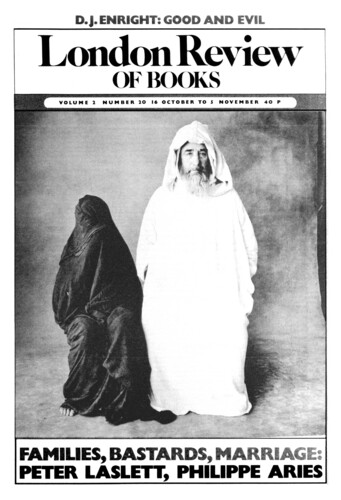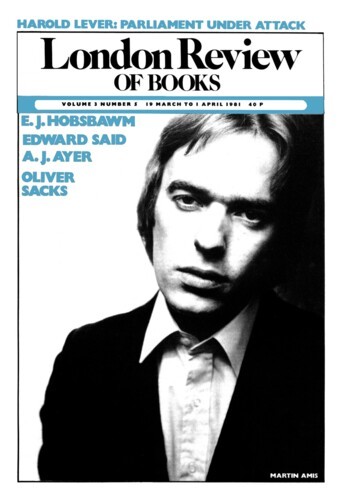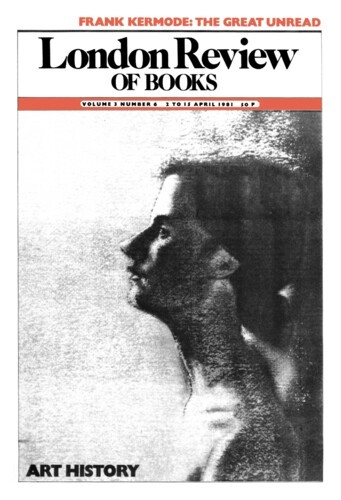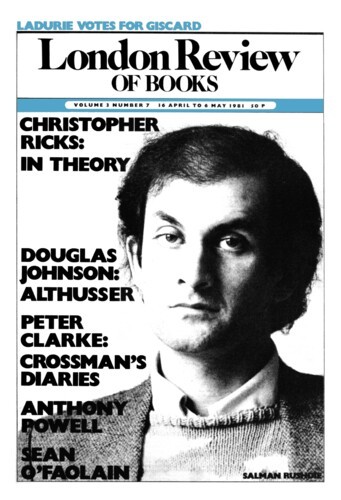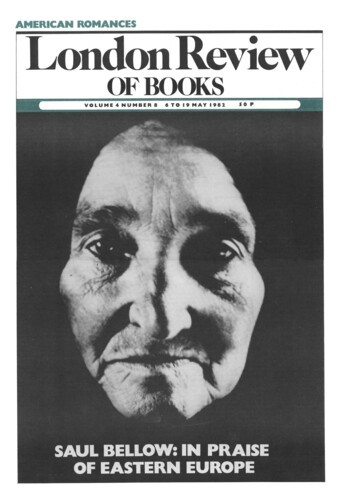MacInnes’s London
Michael Mason, 16 October 1980
With his three London novels Colin MacInnes hit on a marvellous subject-matter, into which he saw deeply. In other departments, however, he did not have the qualities to match. The books are consequently a frustrating experience – giving the sense of something thwarted, or half-realised. Taken as a group, indeed, they testify to the author’s unease about how best to convey his materials and vision. Each of them has its own distinct, extreme principle of style and/or organisation, while their subject-matter remains extraordinarily uniform. There is very little in common, for example, between the alternating first-person, colloquial narratives of City of Spades and the sententious, schematic narrative of Mr Love and Mr Justice. The theme of the pimp, however – one of MacInnes’s most idiosyncratic preoccupations – dominates both plots.
